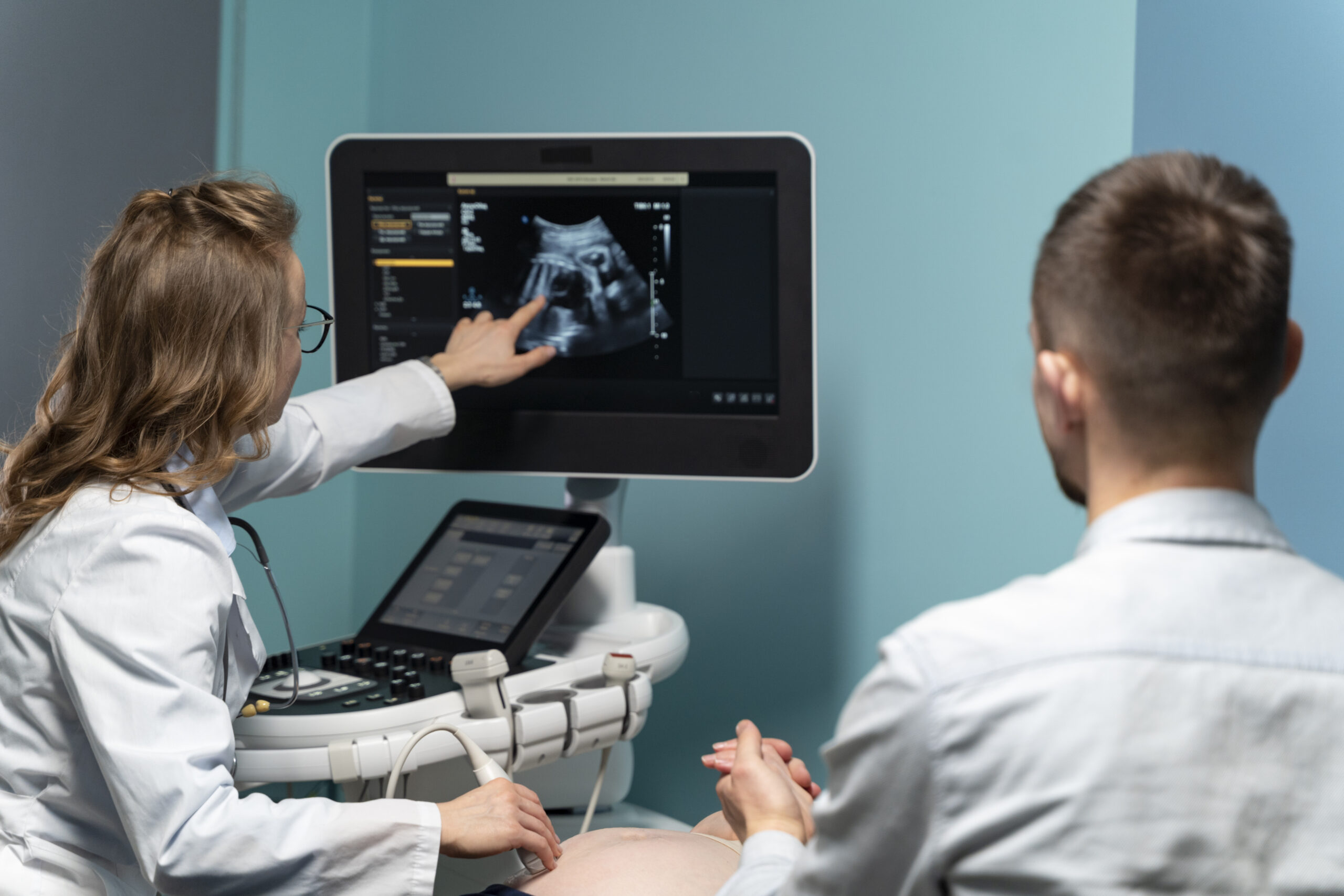
Pregnancy, a miraculous journey, unveils its wonders through an ultrasound scan. This non-invasive procedure uses sound waves to create images, offering a glimpse into the womb’s secret world. Typically performed during different trimesters, ultrasound tracks fetal development and ensures a healthy progression. The emotional resonance of seeing your unborn child on the screen enhances the parental bond, turning anticipation into a tangible connection. As the ultrasound captures the rhythmic heartbeat and tiny movements, it becomes a cherished window into the evolving miracle of life, providing reassurance and joy to expectant parents on their path to welcoming a new family member.
While ultrasound scans primarily monitor fetal growth and anatomy, they also play a crucial role in identifying pregnancies at risk for certain genetic disorders. Advanced ultrasound technology enables the detection of physical anomalies or markers associated with conditions like Down syndrome or neural tube defects. By examining features such as facial structure, heart abnormalities, and limb development, doctors can offer insights into potential genetic disorders. While not definitive, these scans contribute valuable information, guiding further diagnostic tests and facilitating informed decision-making for expectant parents. Early detection empowers medical teams to provide specialized care, enhancing the overall management of such affected pregnancies.
Everything you need to know
Ultrasound scans can provide valuable information about fetal development and help identify certain genetic disorder or structural anomalies. However, it’s important to note that ultrasound alone cannot definitively diagnose genetic disorders; additional tests may be required for confirmation.
Some conditions that might be observed or suspected during an ultrasound include the following:
Down syndrome (Trisomy 21): An ultrasound may reveal facial features such as a flattened nasal bridge and small nose, along with potential heart defects. These markers prompt further testing for confirmation. While ultrasound can indicate potential risks, a definitive diagnosis requires genetic testing.
Edwards syndrome (Trisomy 18): Ultrasound findings might include heart and kidney abnormalities, clenched hands, and a small jaw. However, these signs are not exclusive to Trisomy 18, necessitating genetic testing for an accurate diagnosis. The severity of these anomalies can vary, influencing decisions about the pregnancy.
Patau syndrome (Trisomy 13): Ultrasound may detect brain and facial abnormalities, as well as heart defects. However, like other trisomies, genetic testing is crucial for confirmation. Early detection allows for informed decisions regarding medical management and potential interventions.
Turner syndrome: Ultrasound may reveal structural heart defects, kidney abnormalities, or cystic hygromas. However, a definitive diagnosis involves genetic testing. Early identification facilitates appropriate medical care and counseling for families.
Cystic fibrosis: While ultrasound may indicate echogenicity changes in the fetal bowel, genetic testing is necessary for a conclusive diagnosis. This information can guide prenatal and postnatal care strategies for affected infants.
Neural tube defects (e.g., Spina Bifida): Ultrasound may identify spinal cord or brain abnormalities, prompting further evaluation, including fetal neurosonography.
Trisomy 16 Mosaicism: Ultrasound findings may include growth restriction and structural abnormalities. Confirmation through genetic testing is essential to determining the extent of mosaicism and its potential impact on fetal development.
Muscular dystrophy: Ultrasound may detect reduced fetal movements or abnormal muscle development. However, genetic testing is necessary to confirm the specific type of muscular dystrophy and its implications for the child’s health. Early diagnosis enables proactive medical planning and support for affected families.
The integration of ultrasound technology in prenatal care has proven invaluable for comprehending potential genetic disorders. By providing detailed insights into fetal development and detecting subtle anomalies, ultrasound serves as a vital tool for guiding expectant parents and doctors. While it offers valuable clues, it’s important to recognize that ultrasound alone is not a definitive diagnostic tool for genetic disorders; confirmatory testing is often required. Nonetheless, the ability to visualize and understand aspects of fetal health through ultrasound enhances our capacity for early intervention and informed decision-making, fostering a proactive approach to managing genetic concerns during pregnancy. As technology advances, the synergy between ultrasound and genetic testing continues to shape a more comprehensive understanding of the intricate journey from conception to childbirth.
Conclusion
Ambady Scan Centre Thrissur, the best pregnancy scanning centre plays an important role in overseeing pregnancies with a focus on genetic disorders. We also provide different types of scans which provide unparalleled early detection, detailed visualization, and ongoing assessment of the developing fetus.
Utilizing advanced imaging technologies and cutting-edge facilities, Ambady Scan Centre adopts a comprehensive approach to managing expectant mothers at risk of genetic disorders. With a wealth of experience spanning 25 years, the centre excels in genetic screening and upholds a commitment to multidisciplinary collaboration.
Ambady Fetal Maternal Care Center is the pioneer in ensuring optimal care for both mother and baby throughout the pregnancy. Ambady Scan Center remains a leading institution dedicated to the health and well-being of expectant mothers.


